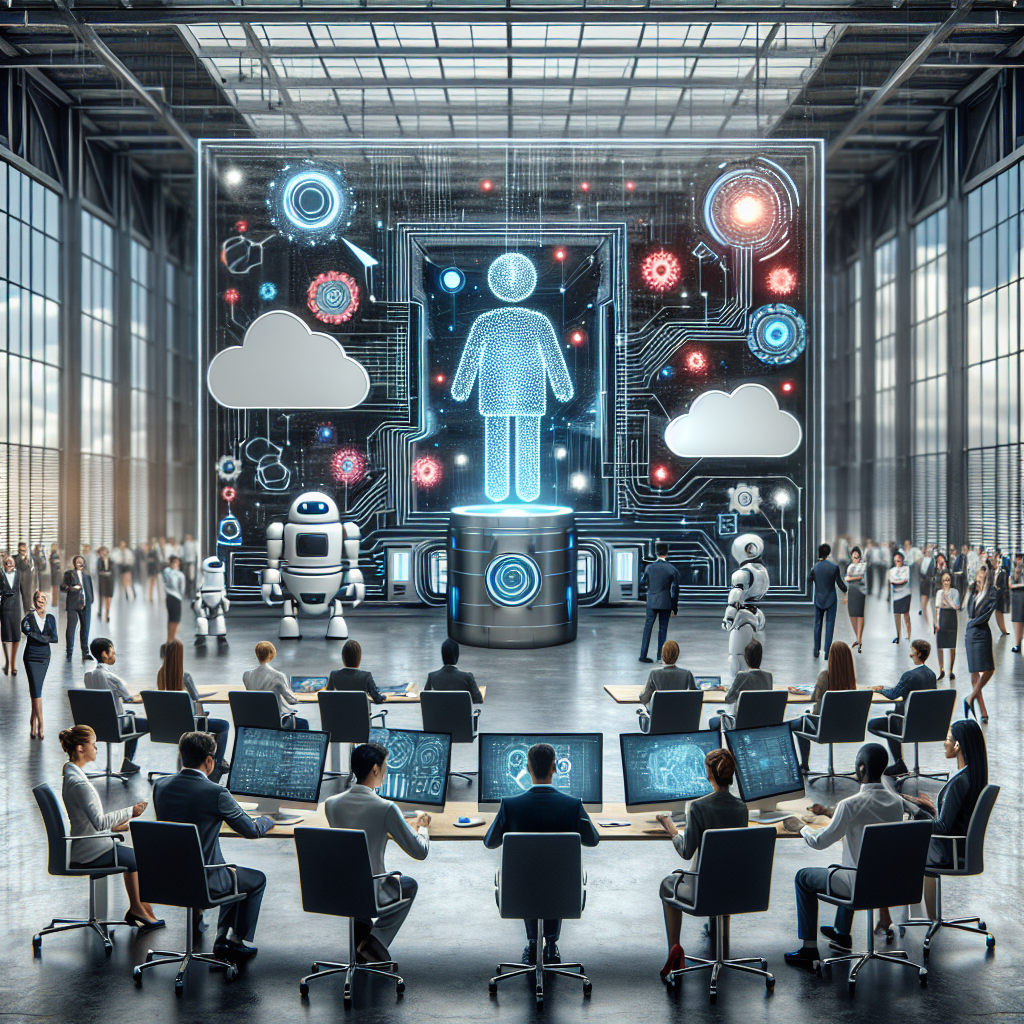The Future of Work: AI-Driven Solutions for Human Resources and Talent Management
In recent years, the field of Human Resources (HR) and Talent Management has undergone significant transformations due to advancements in technology, particularly artificial intelligence (AI). AI-driven solutions have revolutionized the way organizations manage their workforce, recruit talent, and develop their employees. In this article, we will explore the impact of AI on HR and Talent Management and discuss the future of work in the age of AI.
AI in HR and Talent Management
AI has the potential to revolutionize the HR and Talent Management functions by automating repetitive tasks, providing valuable insights, and improving decision-making processes. Here are some key ways AI is being used in HR and Talent Management:
1. Recruitment and Selection: AI-powered algorithms can analyze resumes, screen candidates, and even conduct initial interviews. These tools can help recruiters identify the best candidates for a job, saving time and improving the quality of hires.
2. Employee Engagement: AI can measure employee engagement levels through surveys, feedback forms, and other data sources. By analyzing this information, HR professionals can identify trends, predict employee turnover, and take proactive steps to improve employee satisfaction.
3. Performance Management: AI can provide real-time feedback to employees, track their performance metrics, and suggest personalized development opportunities. This can help employees improve their skills, boost their productivity, and achieve their career goals.
4. Learning and Development: AI-powered tools can deliver personalized training programs based on employees’ skills, preferences, and learning styles. This can help organizations upskill their workforce, increase employee engagement, and drive business growth.
5. Succession Planning: AI can help HR professionals identify high-potential employees, assess their readiness for leadership roles, and create succession plans. This can ensure a smooth transition of talent and prevent leadership gaps within the organization.
The Future of Work in the Age of AI
As AI continues to evolve and become more integrated into HR and Talent Management practices, the future of work is expected to be characterized by increased automation, data-driven decision-making, and a focus on employee well-being. Here are some key trends that are shaping the future of work in the age of AI:
1. Remote Work: The COVID-19 pandemic has accelerated the adoption of remote work, leading organizations to rely on AI-powered tools for virtual collaboration, communication, and productivity tracking. In the future, remote work is expected to become the new norm, with AI facilitating seamless work-from-home experiences.
2. Gig Economy: The rise of the gig economy has created new opportunities for flexible work arrangements, contract-based projects, and on-demand talent sourcing. AI can help organizations manage gig workers, track their performance, and ensure compliance with labor laws.
3. Skills-Based Hiring: In the age of AI, organizations are shifting towards skills-based hiring, focusing on candidates’ abilities, competencies, and potential rather than traditional credentials. AI-powered assessments can help identify candidates with the right skills for the job, leading to more diverse and inclusive hiring practices.
4. Employee Well-Being: AI can play a crucial role in promoting employee well-being by monitoring stress levels, identifying burnout risks, and providing personalized support. Organizations are investing in AI-driven wellness programs, mental health resources, and work-life balance initiatives to support their employees’ overall health and happiness.
5. Ethical AI: As AI becomes more pervasive in the workplace, there is a growing concern about ethical issues such as bias, privacy, and transparency. Organizations must ensure that their AI systems are fair, accountable, and transparent to avoid potential risks and legal implications.
FAQs
Q: How can AI help organizations attract and retain top talent?
A: AI can help organizations attract and retain top talent by streamlining the recruitment process, providing personalized experiences for candidates, and offering development opportunities that align with their career goals. AI-powered tools can also analyze employee data to identify factors that contribute to turnover and take proactive steps to improve retention rates.
Q: What are the potential risks of using AI in HR and Talent Management?
A: Some potential risks of using AI in HR and Talent Management include bias in algorithms, data privacy concerns, and job displacement. Organizations must ensure that their AI systems are designed and implemented ethically, comply with data protection regulations, and prioritize employees’ well-being during the digital transformation process.
Q: How can HR professionals prepare for the future of work in the age of AI?
A: HR professionals can prepare for the future of work in the age of AI by upskilling themselves in data analytics, AI technologies, and digital HR tools. They should also focus on developing emotional intelligence, communication skills, and adaptability to effectively lead their teams through organizational changes and technological advancements.
In conclusion, the future of work is increasingly being shaped by AI-driven solutions in HR and Talent Management. Organizations that embrace AI technologies, prioritize employee well-being, and uphold ethical standards are poised to thrive in the digital age. By leveraging the power of AI to recruit, develop, and retain top talent, organizations can create a more agile, inclusive, and productive workforce for the future.

